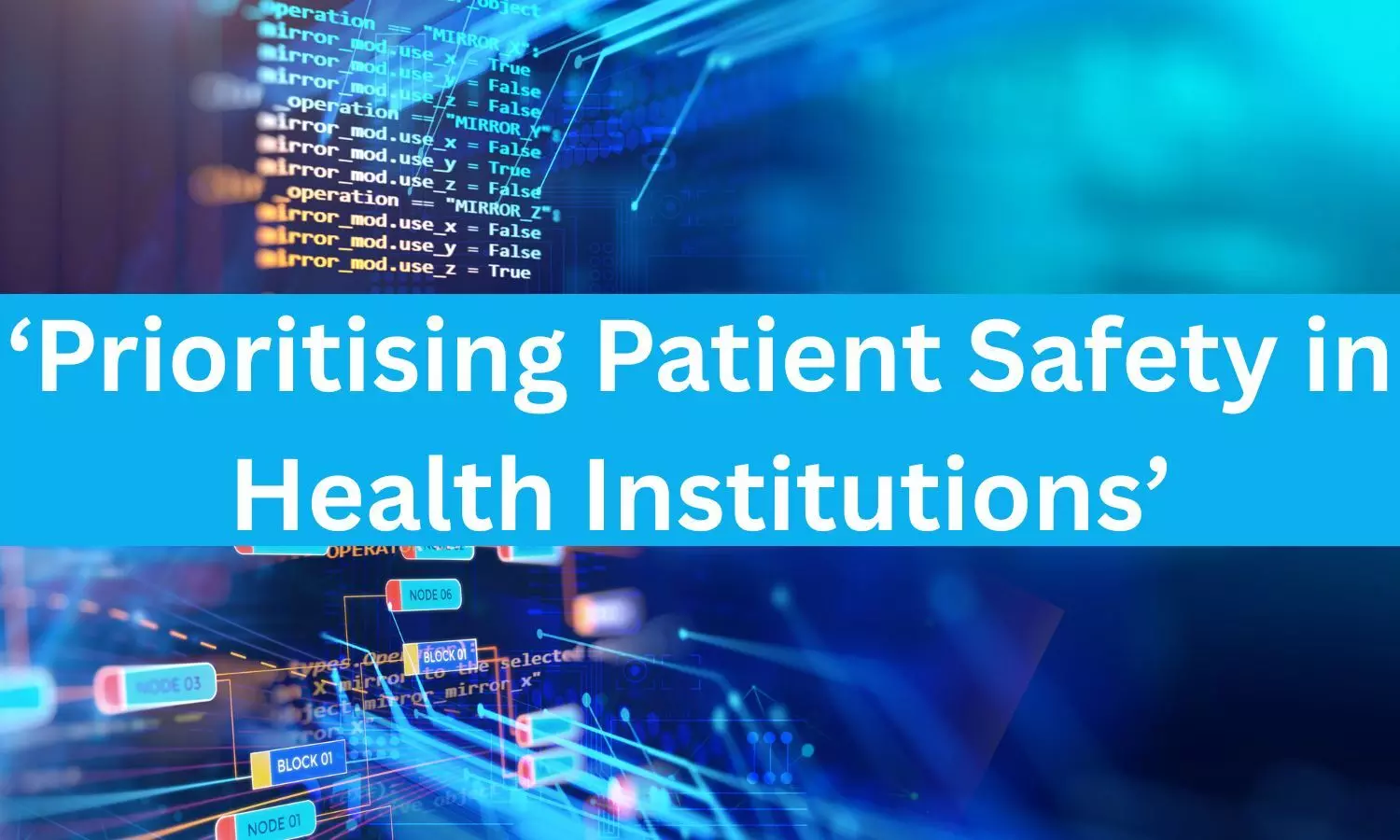By Contributor,Kristen Moon
Copyright forbes

The MMI is a way for premed students to demonstrate their thinking and ethical skills in front of a medical school admissions panel.
Multiple Mini Interview (MMI) Training. (n.d.). The University of British Columbia. https://events.ubc.ca/event/mmi-training/
The Multiple Mini Interview (MMI) is one of the hardest parts of getting into a BS/MD program. It is a complex set of ethical dilemma scenarios that asks you to think through grey zones using your compassion and professionalism. It’s unique from the traditional interview questions that you may be used to, which ask you to talk about your values. MMI stations put you front and center in ethical conflicts. You could be a student, a healthcare provider, or a member of the community. Then, you are asked what you would do. The goal of this article is to give you a clear framework for how to approach these ethical questions with confidence. You will learn the context behind medical ethics, think through real-world examples, and learn strategies to know when to act, when to consult others, and how to navigate both legal and cultural complexities in medicine.
Understanding the Four Pillars of Medical Ethics in MMIs
When you are given an ethical question in MMIs, you should let the Four Pillars of Medical Ethics guide your thought process in your response. These principles are recognized around the world and used by physicians and policymakers to make decisions in medicine in the real world.
1. Autonomy
Respecting a patient’s right to make decisions about their own healthcare without any sort of coercion is important. This includes informed consent and the right to refuse treatment.
MORE FOR YOU
Example: A mentally stable adult refuses chemotherapy. Even if the physician disagrees, they must honor their decision.
2. Beneficience
Doing good for the patient. This principle emphasizes the importance of proactive care. This means not just avoiding harm, but also actively promoting health and well-being preventively.
Example: A physician starts a difficult conversation about palliative care, knowing that it is what’s best for the patient’s quality of life.
3. Non-maleficence
“First, do no harm.” This principle requires physicians to avoid actions that may cause unnecessary harm, even if their intentions are good.
Example: A doctor refuses to prescribe antibiotics for a viral infection to prevent resistance and other side effects that patients may experience.
Fairness in medical care. All patients should receive equitable treatment regardless of their race, gender, or socioeconomic status.
Example: A physician does not prioritize one patient over another because of their insurance status.
In MMI, you do not need to recite these principles word-for-word, but you must show that you are thinking about them in your responses. Interviewers want to hear your reasoning and thinking process more than the actual decision that you make.
Common Ethical Scenarios and How to Break Them Down in MMIs
Let’s explore a few real-world MMI examples with explanations on how to analyze and approach them with the Four Pillars in mind.
Parent Refuses Vaccination
A parent refuses to vaccinate their newborn because of some misinformation that they read online. You are their pediatrician. What do you do?
Ethical Tensions:
Autonomy (parental decision-making)
Non-maleficence and Justice (protecting the child’s health and the public’s safety)
Start by listening in a nonjudgmental way. Ask what they have heard and what they are afraid of.
Give them evidence-based information that specifically addresses their concerns.
Emphasize the importance of community health and herd immunity.
If they continue to refuse, carefully document it and assess the risk it poses to others.
You can respect the patient’s autonomy while still staying in line with beneficence. You are not trying to force the patient to comply. Instead, you are trying to guide them towards making an informed decision.
2. Objecting to Treatment for Religious Reasons
A patient tells you that she is sexually active and wants birth control but does not want her conservative parents to know.
Ethical Tensions:
Autonomy of the patient
Legal limits and Non-maleficence (risk of unprotected activity)
Determine whether the patient is mature and protected by confidentiality laws in your state.
Acknowledge her concern and explain that your job is to balance her privacy with her safety.
Educate the patient on STIs, consent, and contraception.
Consult senior staff or the legal team if you are still unclear about how to proceed.
This question is a hybrid between a legal and ethical example. You should show that you would ask for guidance and stay nonjudgmental while having the end goal of protecting your patient’s health.
3. Preferential Care in Underserved Communities
A donor offers to donate a large amount of money to your clinic but asks for faster care for his family.
Ethical Tensions:
Beneficence to the community (more funding)
Thank the donor, but explain that the clinic aims to provide equal care to all of its patients.
Educate them about how donations are used in a transparent manner.
Report the request to the administration if they continue to pressure.
This scenario tests your ability to say no in a respectful way while upholding fairness in a medical setting. It also asks about integrity under pressure.
When to Consult Authority vs. Take Action in MMIs
One of the hardest decisions to make in ethical scenarios is whether to handle something yourself or escalate it to someone with more power. Medical students often toe the line between speaking up and deferring in situations.
Here’s a general guideline to help you navigate this:
Take action when…
The issue is interpersonal or involves microaggressions. If you notice that their tone is off or sense disrespect, such as if a peer makes inappropriate comments.
You feel safe and capable of addressing the issue directly, such as cultural insensitivity in a meeting.
It is a one-time misunderstanding that can be addressed with a conversation.
Consult authority when…
The issue involves legal matters, risks patient safety, or breaks institutional rules, such as elder abuse, falsified records, or medication issues.
You are unsure about the legality or protocol of the problem, and you have tried and failed to address it yourself.
It is a pattern of behavior, a systemic issue, or could harm patients or the staff.
In your answers, you can say something like:
“I would first try to address the situation myself, as long as I feel that it is safe and appropriate. If the behavior continues or I see safety concerns rise, I would escalate it.”
This shows your assertiveness, professionalism, and judgment, which are important for success in MMIs.
Balancing Legal, Ethical, and Cultural Complexity in MMIs
Not all ethical dilemmas have one dimension. Many are at the intersection of cultural values, legal issues, and clinical practice. Having a great MMI answer means acknowledging this.
Legal Awareness
You are not expected to be a lawyer, but you should show your awareness of mandatory reporting, confidentiality, and patient rights.
You must report abuse, even if you are asked not to.
You should maintain confidentiality, unless someone’s safety is at risk.
You can’t force any treatment on patients, even if it means that they may die.
Use legal reasoning to justify your stance when needed. For example:
“Because confidentiality can be breached when safety is at risk, I would…”
“In most states, patients can consent to reproductive care without their parents’ approval…”
Cultural Sensitivity
Cultural competence is not about knowing every tradition in every culture. It’s about showing respect and openness.
Scenario: A patient refuses to get dialysis because they have a spiritual belief that illness is an imbalance.
Poor response: “I would try to convince him that he needs dialysis.”
Good response: “I would thank him for sharing that with me and try to learn more about the ceremony. If the ritual does not compromise his care in any way, I would advocate that he receive the accommodations. If it causes a delay that could be harmful, I would try to make a compromise, keeping both his medical and spiritual integrity.
This response shows cultural humility, collaboration, and patient-centered thinking.
Final Thoughts
Ethical scenarios in the MMI do not test whether you have perfect judgment or not. They are opportunities for you to show how you think and adapt in complex situations.
Here is a simple step-by-step guide to keep in mind:
Recognize the Conflict
What is the ethical issue? Which pillars are involved?
Gather Information
What do you know? What don’t you know? Ask questions to clarify.
Weigh the Perspectives
What does each side care about? What’s the best weight to compromise the needs?
Take a Stance
If there are multiple “good” options, choose one and justify it.
Acknowledge Complexity
There might not be an easy answer, but explain why your approach best aligns with the ethical principles of patient care.
Thinking this way will impress your MMI interviewers with your maturity and empathy. Show them the kind of physician you hope to be.
Editorial StandardsReprints & Permissions



